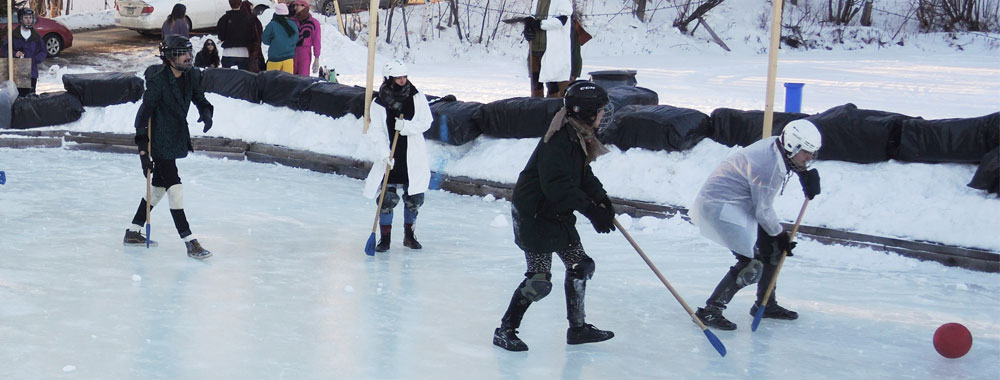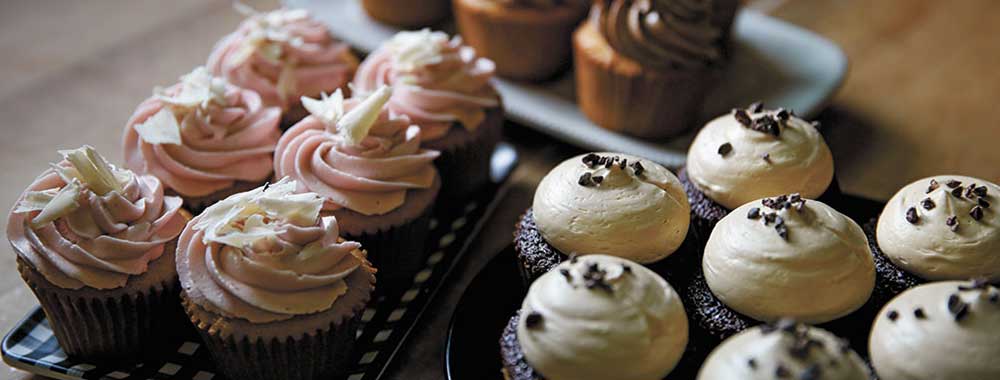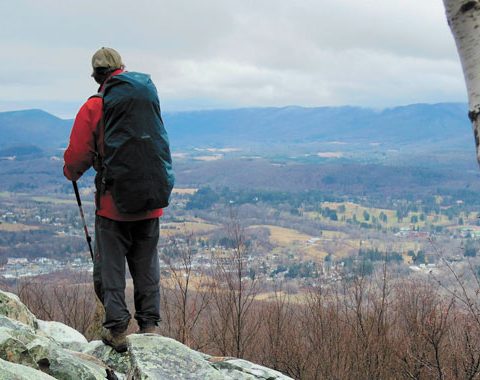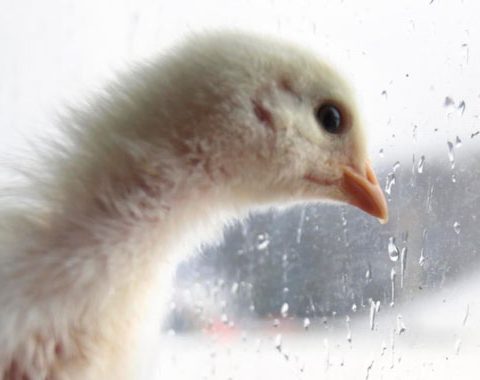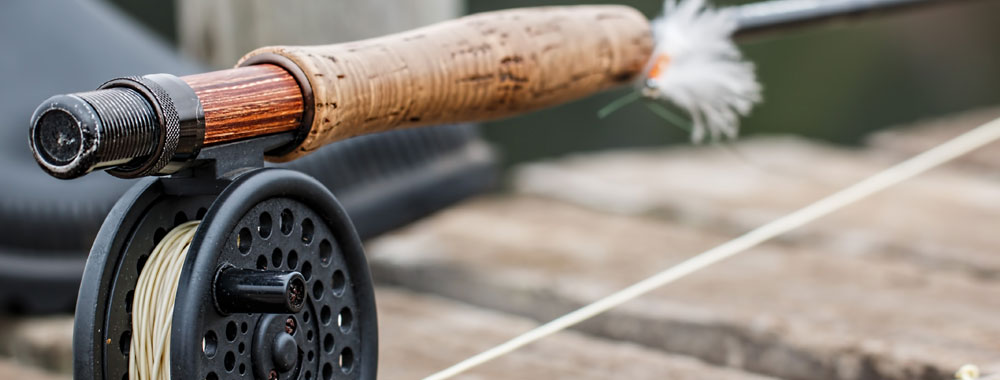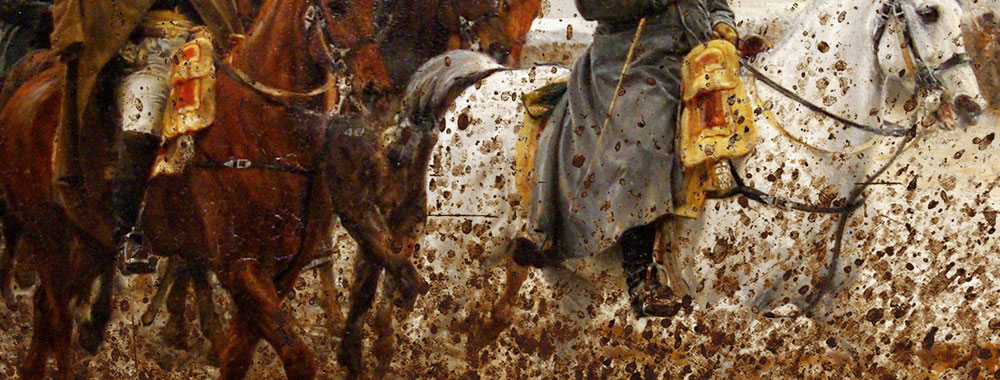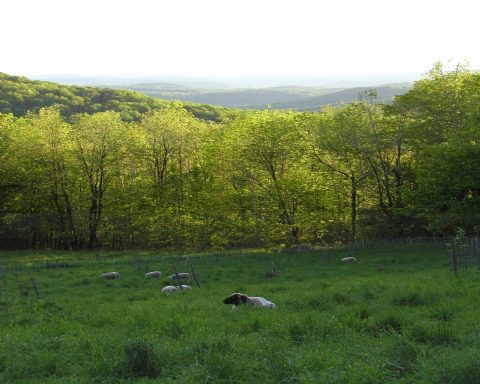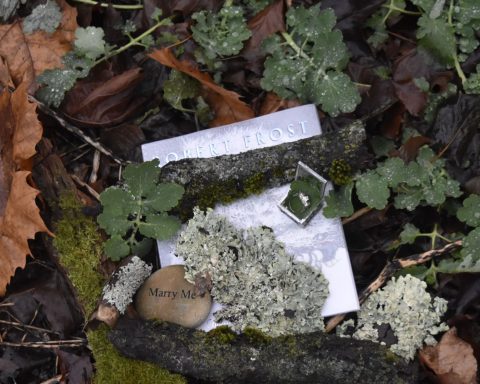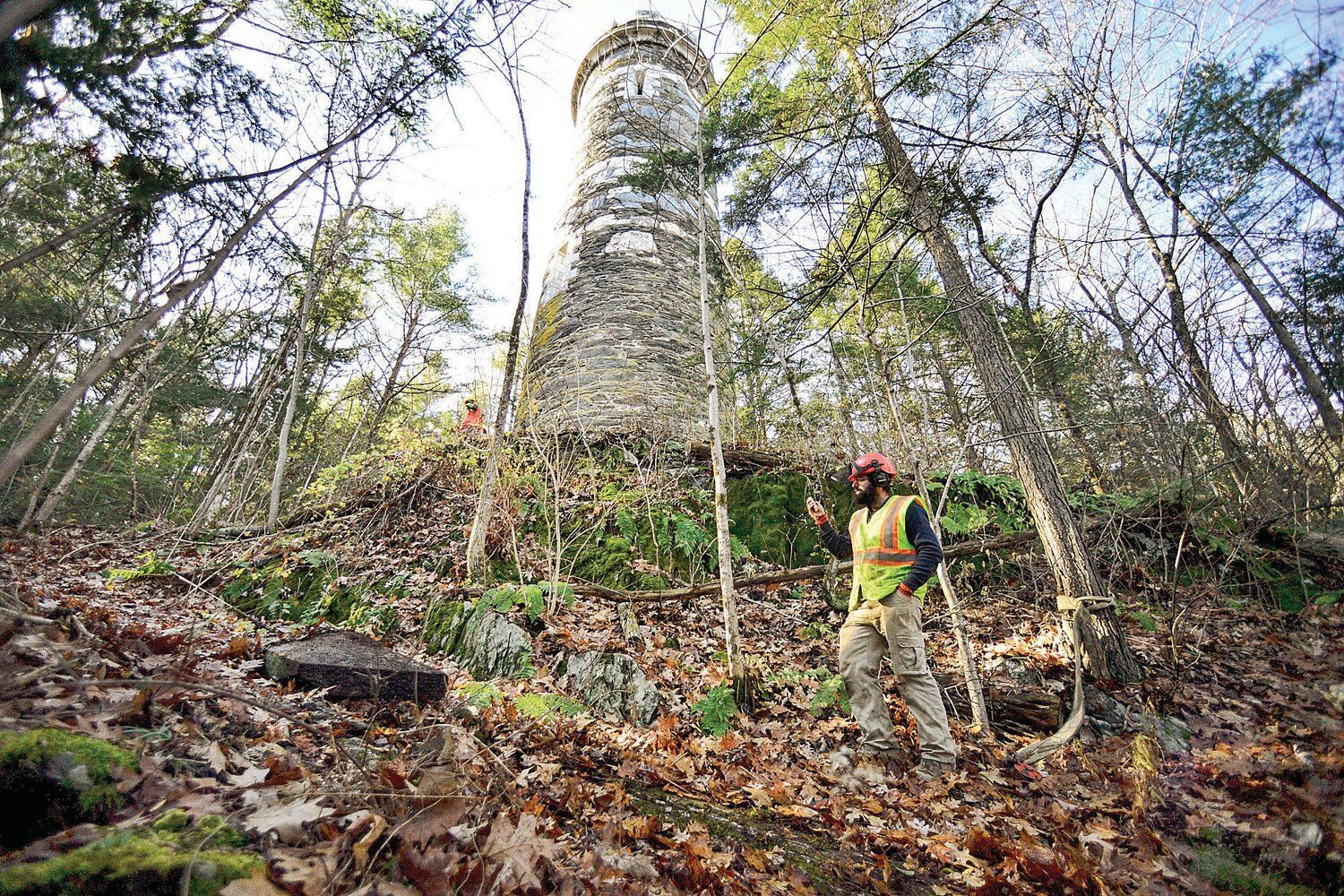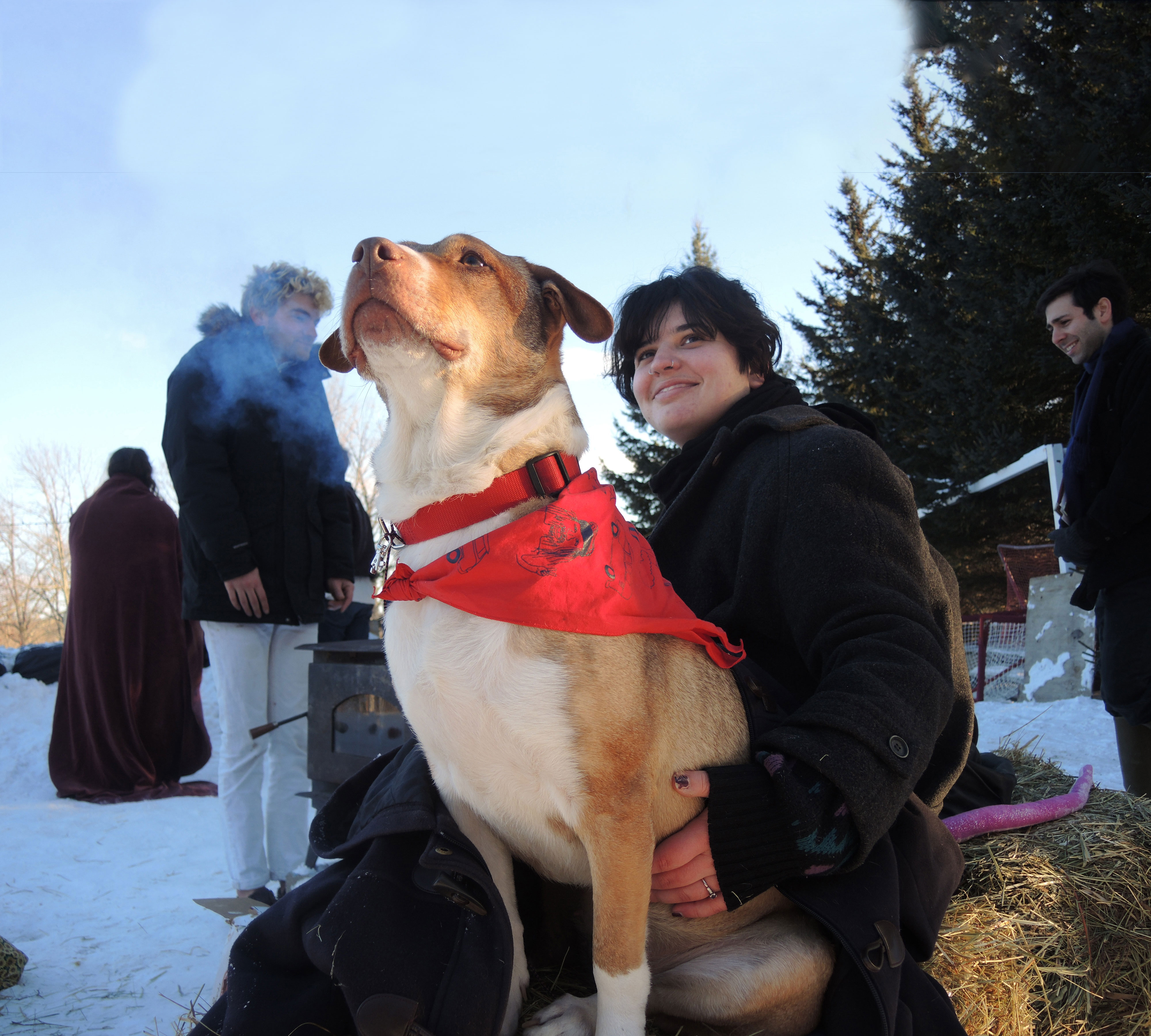
By Larry Parnass
This town understands isolation. Back in 2011, Marlboro, Vt., was one of a dozen Vermont communities cut off by Tropical Storm Irene. Flood waters receded and crews repaired roads and bridges, but there was no changing the fact this town of about 1,000 people isn’t close to much.
About three miles south off Route 9 in Southeastern Vermont, it can seem even more remote for the 190 students who attend Marlboro College. Especially this time of year.
“This is actually the month we all get sad together,” observed Sophie Ackerman, one of a half-dozen Marlboro College students, and a dog named Susan, gathered around a woodstove someone had hauled outside, as a battle on ice raged just feet away.
At Marlboro, beating the winter blues has for nearly 30 years meant spending the first weekend in February slip-sliding away in the school’s Broomball tournament. Over two days, players willingly humiliate themselves trying to sweep an object into goals — a lot like hockey, but without skates.
The double-elimination tournament is a great leveler, since nobody’s much good at running on ice. “You’re basically all just sliding around,” said Ackerman, a junior transfer student from Granby, Conn., studying ecology. “There’s solace in community.”
Whether they planned to or not, Marlboro students get a higher education in ways to overcome winter’s assault on mood. So Upcountry journeyed here for tips on how everyone can push back against cabin fever.
Finding No. 1: Don’t try to go it alone.
That’s the lure of Broomball, and a series of other off-beat events that mark the Marlboro social calendar. This innovative college’s culture can be tough on traditions, though Broomball has managed to secure its place. Other events pop up out of nowhere, like the recent airplane-themed student party.
On the date of this departure, space in the Happy Valley dorm was rearranged to accommodate seats in rows resembling an airplane cabin. Guests checked in, flight attendants distributed pretzels, a captain made announcements and someone, thanks to a sound file mined from the internet, cued up the roar of jet engines.
You are now free to move about, the captain announced. And a dance party began. The next theme party under consideration, according to folks gathered around the woodstove, was to involve folkloric monsters. Key ingredient: People.
Finding No. 2: Let there — oh, please — be light.
The school’s seemingly tongue-in-cheek Total Health Center (that’s THC for you acronym-bees) offers students access to full-spectrum lights. Zoe Dehart, a sophomore from Washington, D.C., who is studying politics, likes to go to the light, but notes that this regimen demands rigor.
“You have to do it every day for it to make a difference,” she said.
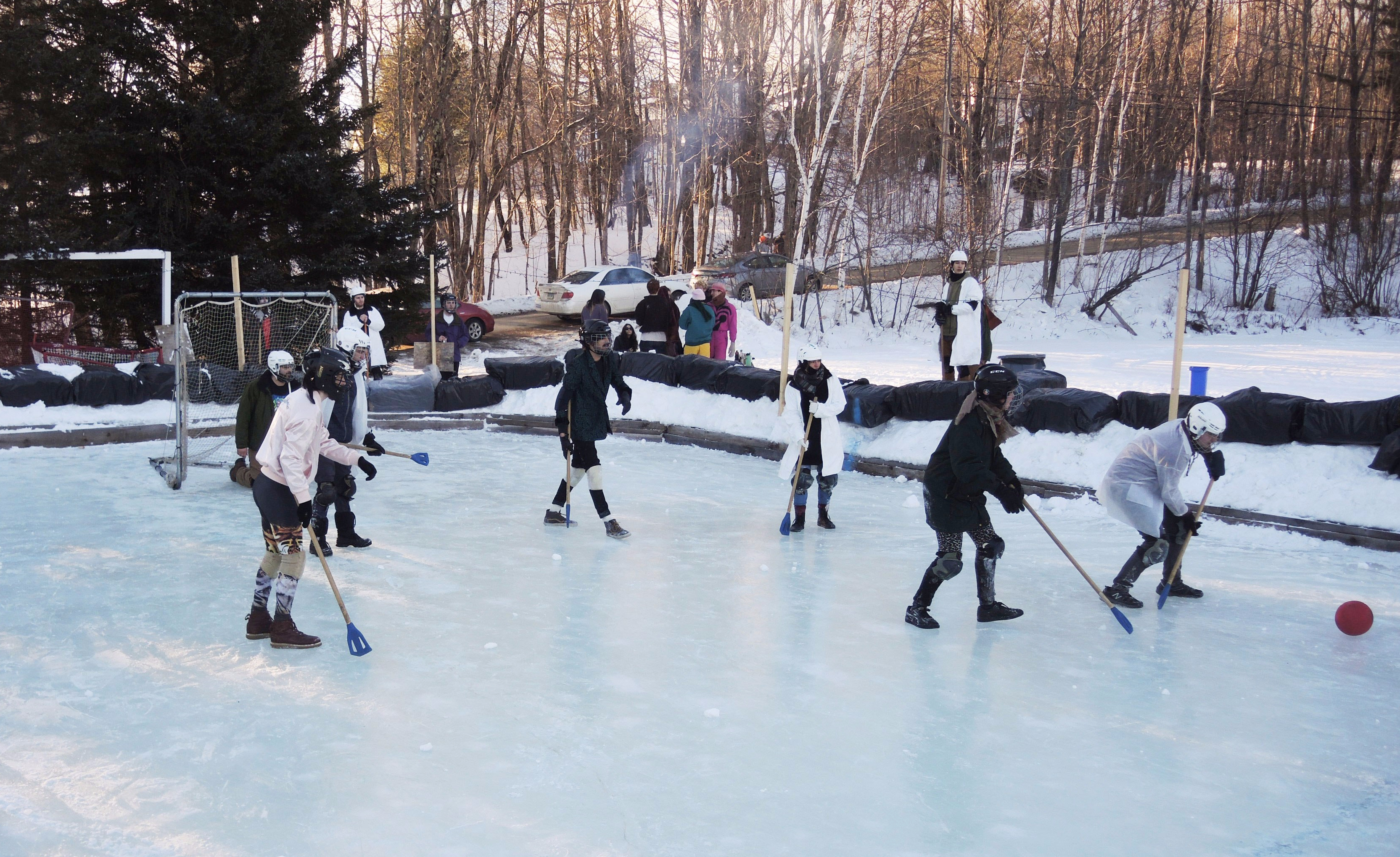
Finding No. 3: Better living with fur.
While pets are not allowed at the college, there’s a loophole that Marlboro students regularly take advantage of: therapy animals.
What else explains the presence on campus of a hedgehog named Agatha?
Or the grinning visage of a mixed-breed hound named Susan, who came to the Broomball tourney wearing a San Francisco-themed kerchief? Incidentally, Susan carried her own set of issues. (“She doesn’t like men,” one student observed. Maybe she needs a therapy human.)
Ackerman, the ecology student from Connecticut, snuggles with her therapy rat Murphy — and is still mourning the recent loss of another such pet. “She’s just there for me to interact with,” Ackerman said of Murphy. “She becomes more important in the wintertime.”
Finding No. 4: Sometimes, people are well, too much.
Natural spaces are just minutes away from the Marlboro campus, in all directions.
Taking inspiration from nature is one of the tried-and-true prescriptions for treating winter ennui.
Andrea Tirrell of Stonington, Conn., who will graduate this spring, assigned herself the task of getting out into the woods, alone. For a final project, she is creating a map and field guide of some of the school’s property.
Marlboro was created in 1946 by joining three hill farms — so the sense of lives spent outdoors and livelihoods supported by nature endures.
As one of the school’s early trustees wrote: “Two roads diverged in a wood, and I — / I took the one less traveled by, / And that has made all the difference.”
That’s how Robert Frost saw it in his poem “The Road Not Taken.” And in his 1915 work, “A Servant to Servants,” Frost wrote this, what might be taken now as a cabin-fever tonic: “ … the best way out is always through.”
Indeed, Tirrell has learned to find her way out through Vermont’s long winters.
“I spend a lot of time on the trails,” she said, as the woodstove crackled and popped and Broomball players came off the ice, the wisest in knee-pads, to warm up.
Several had found that the best way to warm their frozen hands was to insert them with care, one at a time, right down the stove’s vent pipe, remaining alert for sparks.
That ensured that the smell of wood smoke, which some see as a mood elevator in itself, would linger.
“Just getting out and moving in the cold,” Tirrell said of her solitary journeys, sometimes on foot, other times on skis, always with a GPS tracker logging her location. “Getting warm by moving in the woods. It’s just nice to be out there and doing stuff.” •
